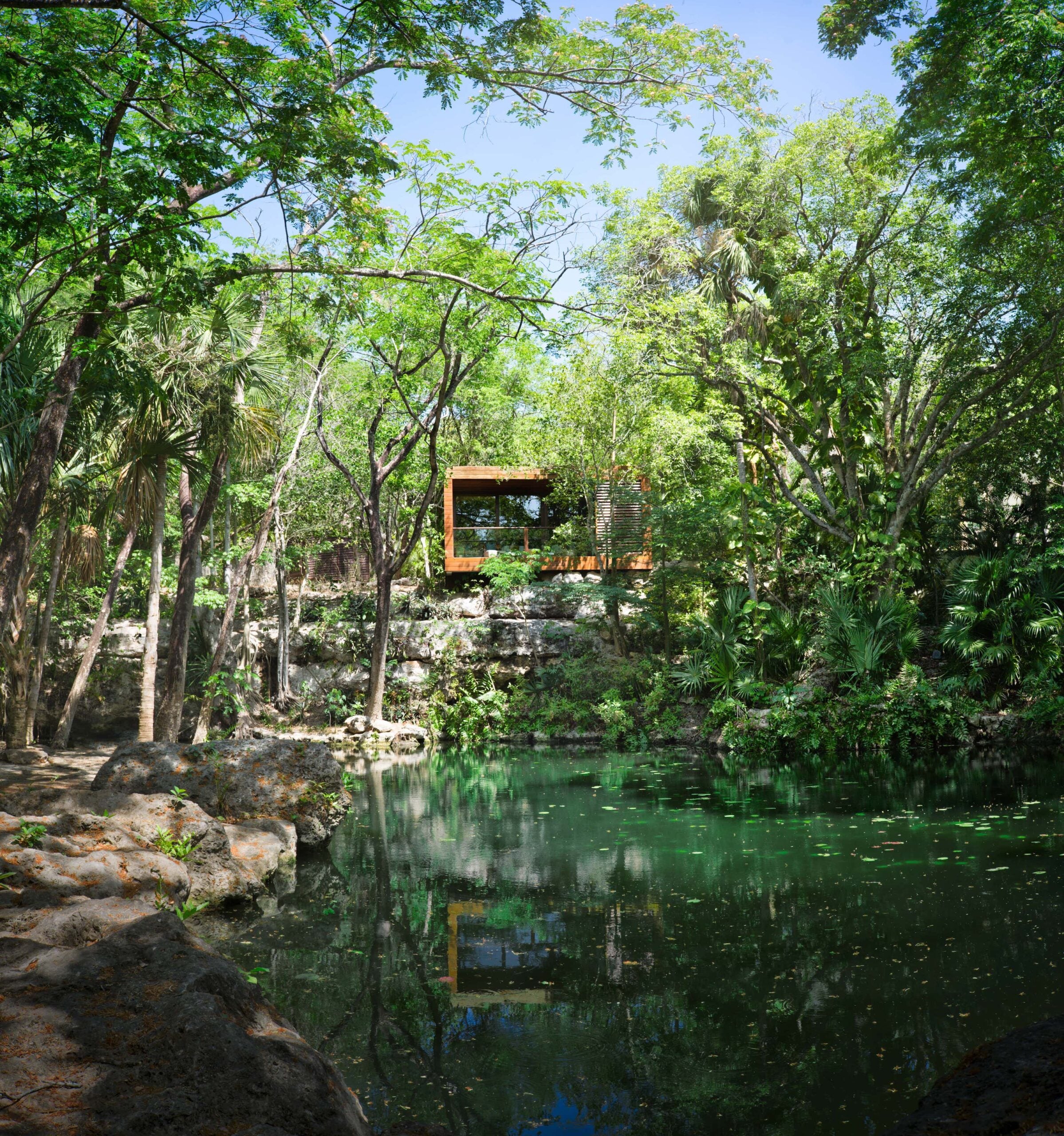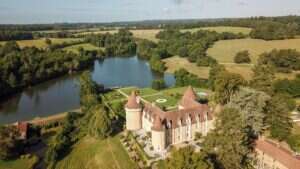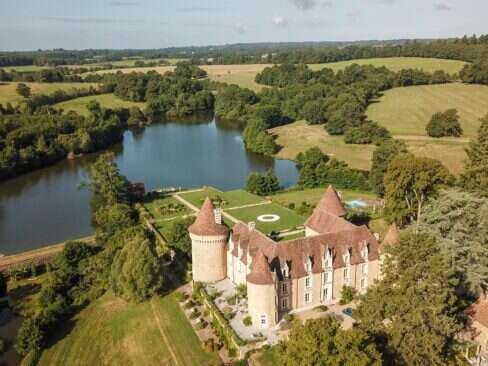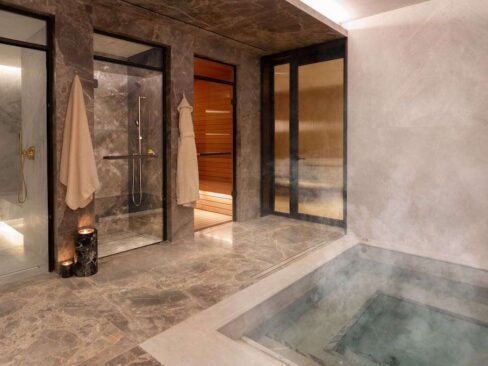In our age of uncertainty, good health remains one of the most coveted commodities, with wellness seekers incorporating all manner of cutting-edge, high-tech remedies into their routine.
But this pursuit is not unique to us today: Since the dawn of humanity, we have been searching for health-boosting remedies and quality-of-life-improving treatments, from the Ancient Greeks’ love of bathing in natural springs to the Native Americans’ therapeutic ‘talking circles.’
And, in proof that everything is cyclical, as our modern world becomes increasingly science-led, more and more health professionals and wellness fanatics are looking back to treatments of yesteryear in the hope of achieving a more holistic sense of well-being — all with an elevated level of respect for the communities that came before us.
Chablé Yucatán, Mexico
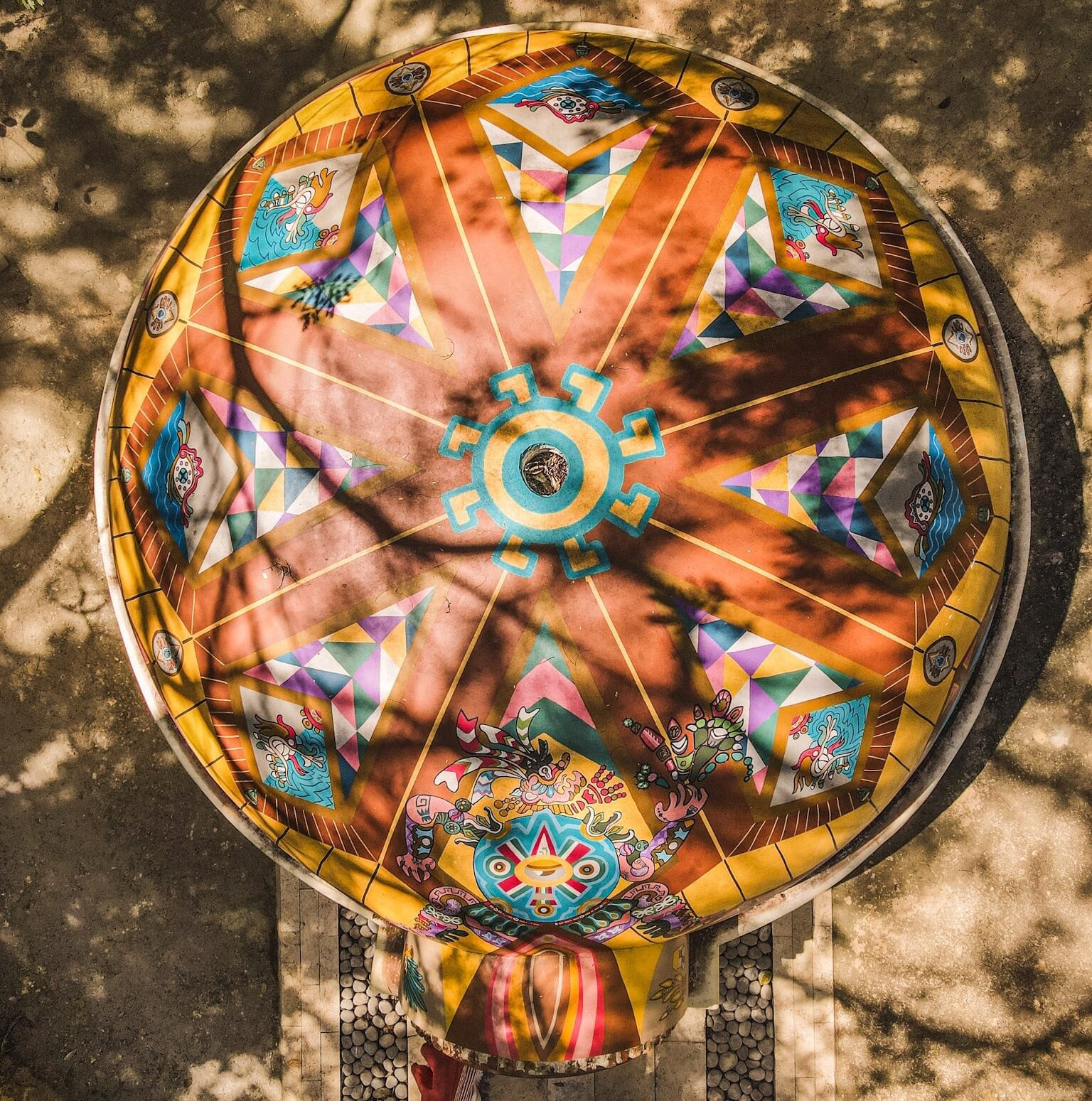
Spirituality is embedded into every element of Chablé Yucatán (even food — especially cacao and corn — holds immense significance), but in few places is this better exemplified than in its mammoth spa and wellness program. Yes, the hotel has all the standard spa services you’d expect of a property of this caliber, including really excellent massages, each of which is completely personalized, and a serene pool amid the jungle.
But it takes its wellness offering one step further, intentionally and authentically integrating Mayan culture into every element of the experience. Those excellent massages all begin with a blessing ceremony, including the blowing of a conch shell and the burning of aromatic copal resin, and each treatment takes place in one of the standalone rooms surrounding Chablé Yucatán’s own cenote (a blessed body of water that makes up an enormous underground network winding throughout Mexico).
This infusion of Mayan traditions extends beyond just ‘treatments,’ too: No matter your goals or schedule, carve out some time for a ritualistic temazcal ceremony. Mayans historically used temazcales as a purification ritual; women would visit them every day for 40 days after giving birth, and men would purify ahead of fighting to ready themselves for their gods. Before entry, each participant is blessed by a shaman and asks permission from the gods to head inside the sunken, dome-shaped structure, built to represent the womb.
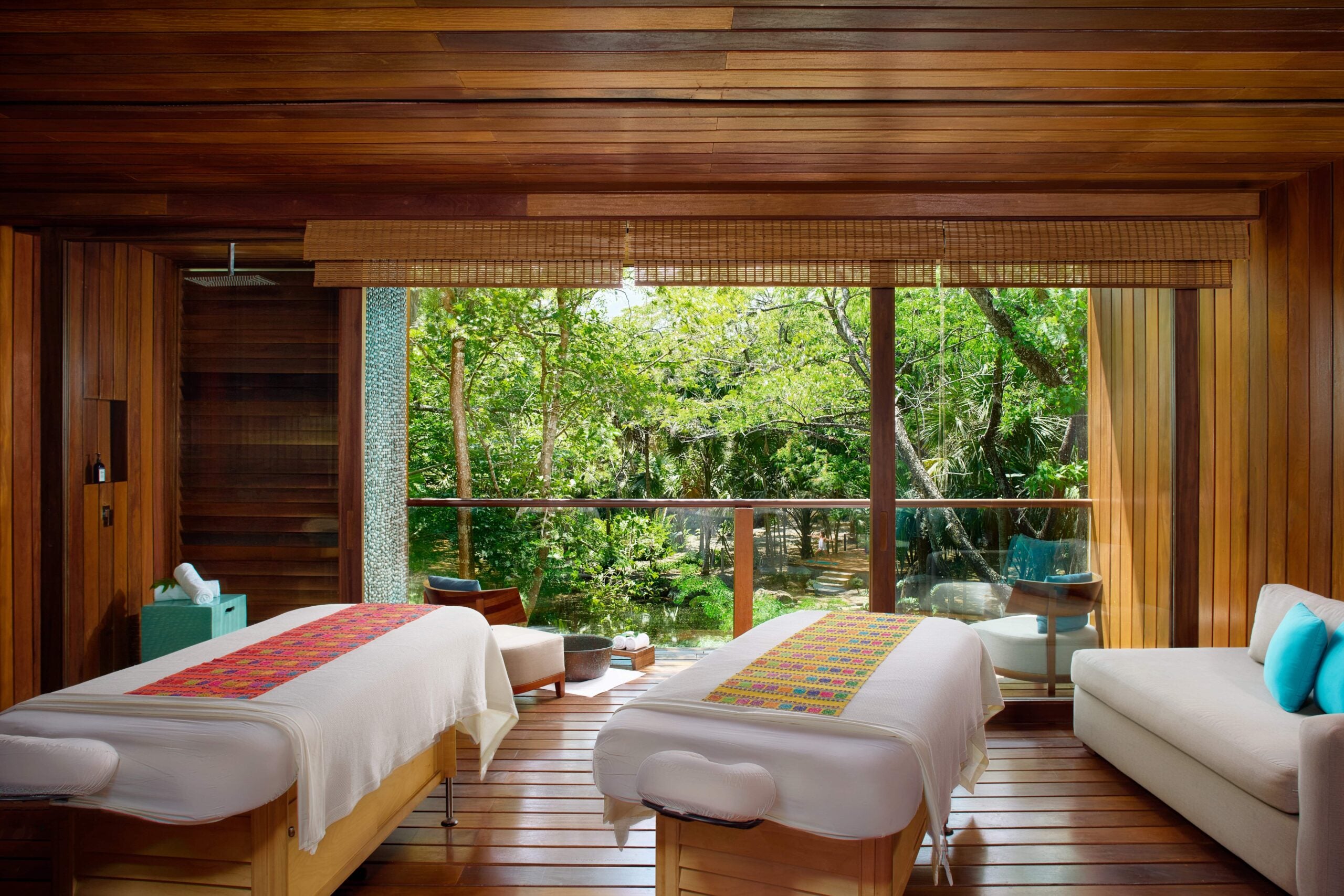
Inside, a deep pit holds volcanic rocks heated by fire; slowly, the shaman showers these boiling rocks — so hot, flames occasionally whip from them — with herb-infused water, casting the room in thick, fragrant steam. No heat escapes, and no light enters; a temazcal experience takes place in complete darkness and lasts up to several hours (with a few brief breaks). Emotions get high and mettle is tested. Make no mistake — this is not for the weak-hearted (literally and figuratively). The shaman is there to guide, but also to support you, and will gently tell you how to excuse yourself if the experience gets too much.
Make it to the end, though, and you will be duly rewarded with an overwhelming sense of emotional renewal. (If you tag on a few days at sister property Chablé Maroma, on the Riviera Maya, your temazcal journey will conclude with a liberating dive into the Caribbean Sea.) The phrase ‘sense of place’ is often empty hotel jargon, but here at Chablé, it couldn’t be more accurate.
Rosewood Munich, Germany
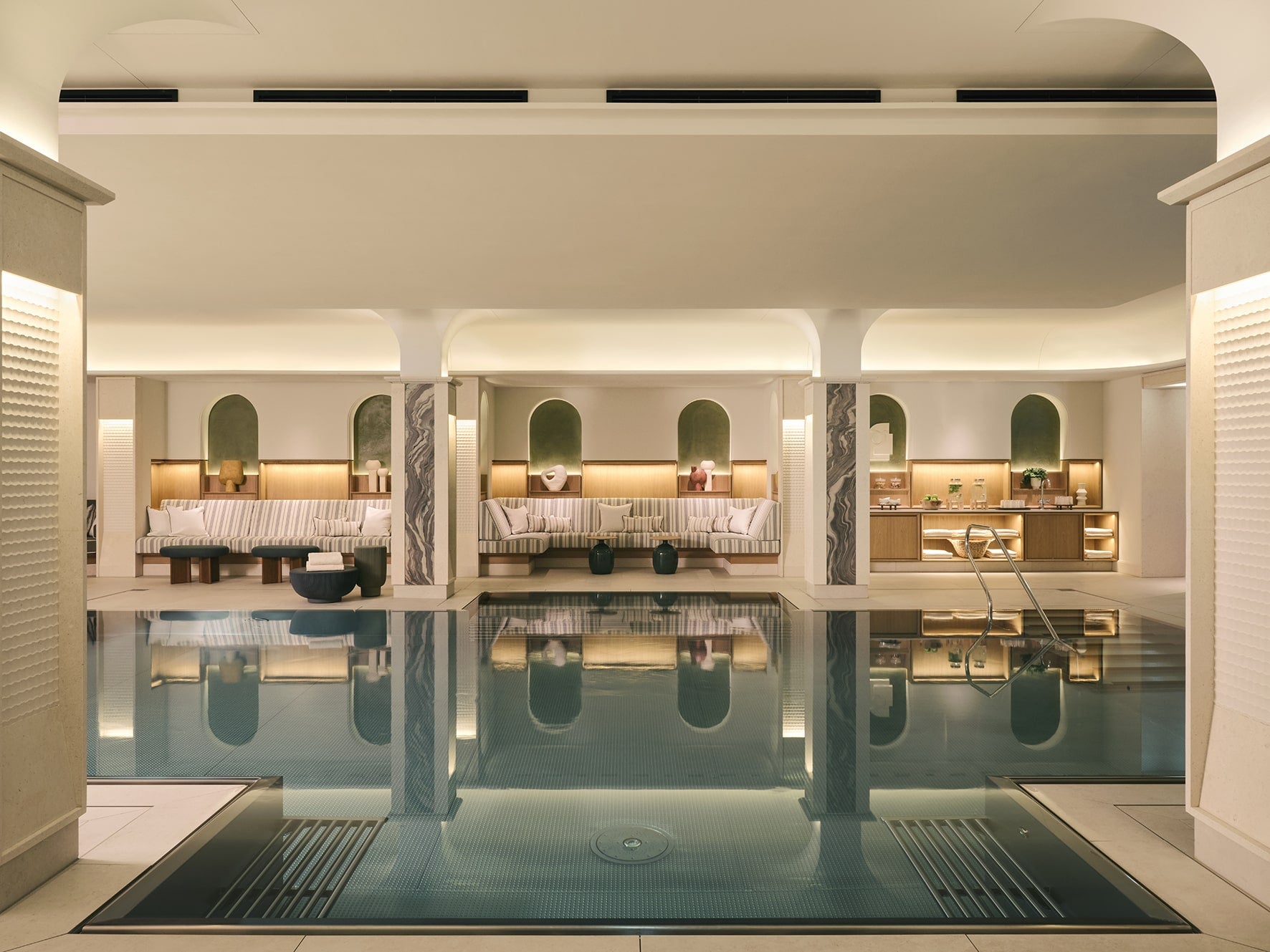
Bavarian culture is known primarily for two things: lots of beer and a meat-heavy cuisine. By standard principles, neither of these things are considered part of a ‘healthy’ lifestyle. Dismantle your stereotypes and dig a little further, however, and you’ll find that Bavaria, a region in southwest Germany dating to the 6th century AD, has wellness deeply embedded into its identity. An area historically cloaked in dense forests, Bavaria typically looked to nature for its healing properties, and local herbs, natural hot springs and mud baths were historically key inclusions in this holistic approach to health.
But in the Bavarian capital of Munich, Rosewood Munich — unveiled in 2023 as the city’s first luxury hotel opening in over a decade — is proving that historic wellness can deftly be incorporated into modern metropolitan living. As part of its Lost Remedies program, offered at the swanky subterranean Asaya Spa, the hotel fuses historic German therapies into its pampering treatments.
For example, the Aufguss Journey, which looks to the traditions of Aufguss in which herbal waters are poured on hot sauna stones, invites guests to perfume the treatment room with fragrances reflecting their current state of mind. The German Monastic Remedy, on the other hand, sees physical earth packed onto the feet in a grounding exercise. Suitably relaxed, retreat to the calming poolside area, complete with wood-clad saunas, a steam room and special heated beds for a few extra hours of pampering.
Six Senses Vana, India
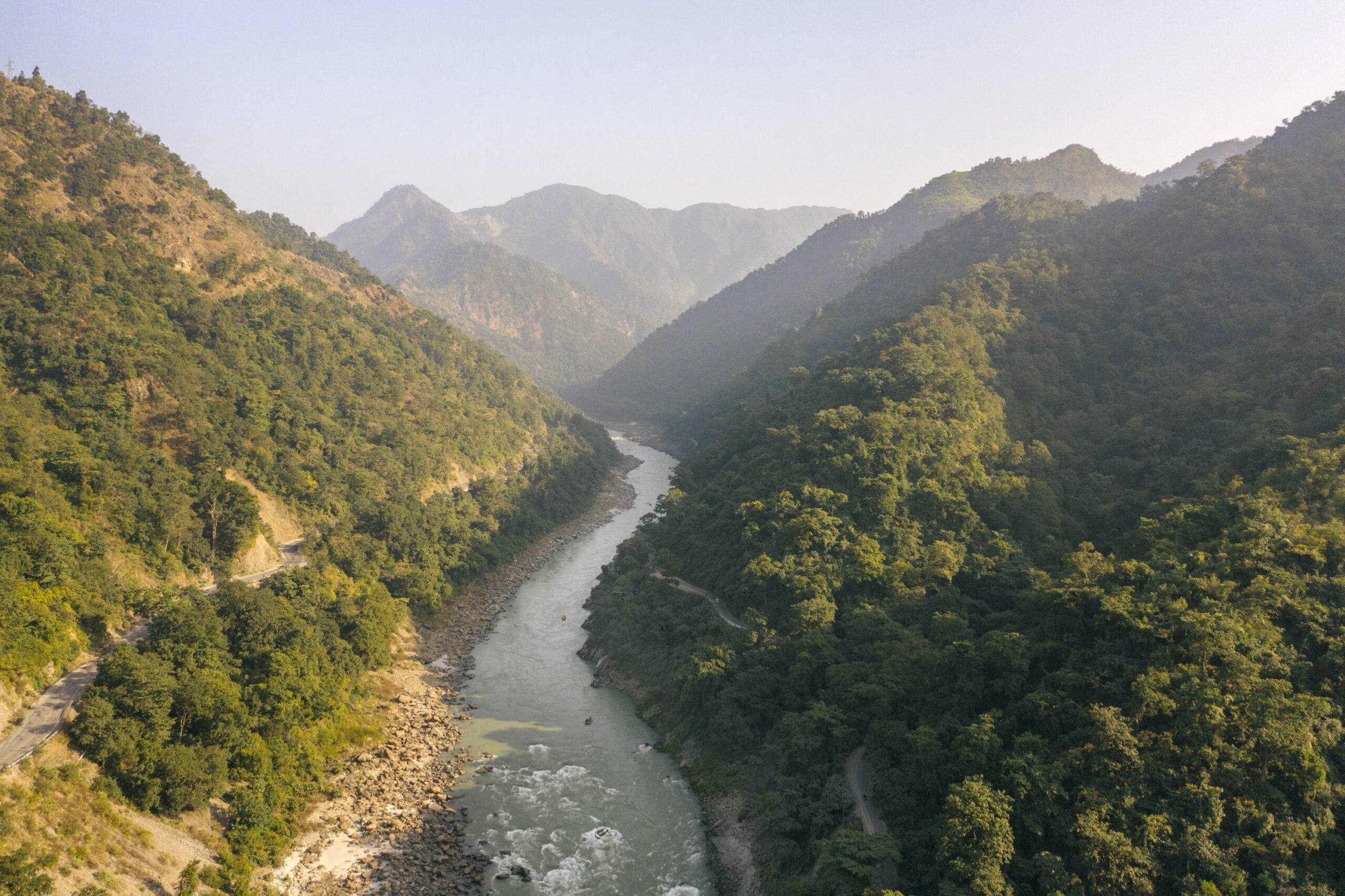
The ancient Ayurvedic system has been the leading pillar of wellness in India for over 5,000 years, and millions of people across the Indian subcontinent continue to rely on the practice for daily medical concerns. Approaching health in a truly holistic manner and treating the body as a whole instead of addressing individual concerns, Ayurvedic medicine works to balance our doshas, or three vital energies (vata, pitta and kapha), which are said to govern our overall well-being. Get these in check, and good health will follow.
Naturally, a health system with such long-held respect has been readily adopted by the realms of luxury, with five-star hotels deftly incorporating Ayurvedic principles into their spa programs. Few do so with such authenticity as Six Senses Vana, however. Located on the outskirts of Dehradun, in the foothills of the Himalayas, the dedicated wellness property offers a series of hyper-focused retreats, designed as intentional resets. “At Six Senses Vana, tradition isn’t merely preserved — it’s embodied, experienced and gently reimagined,” says retreat director, Saranpreet Suri.
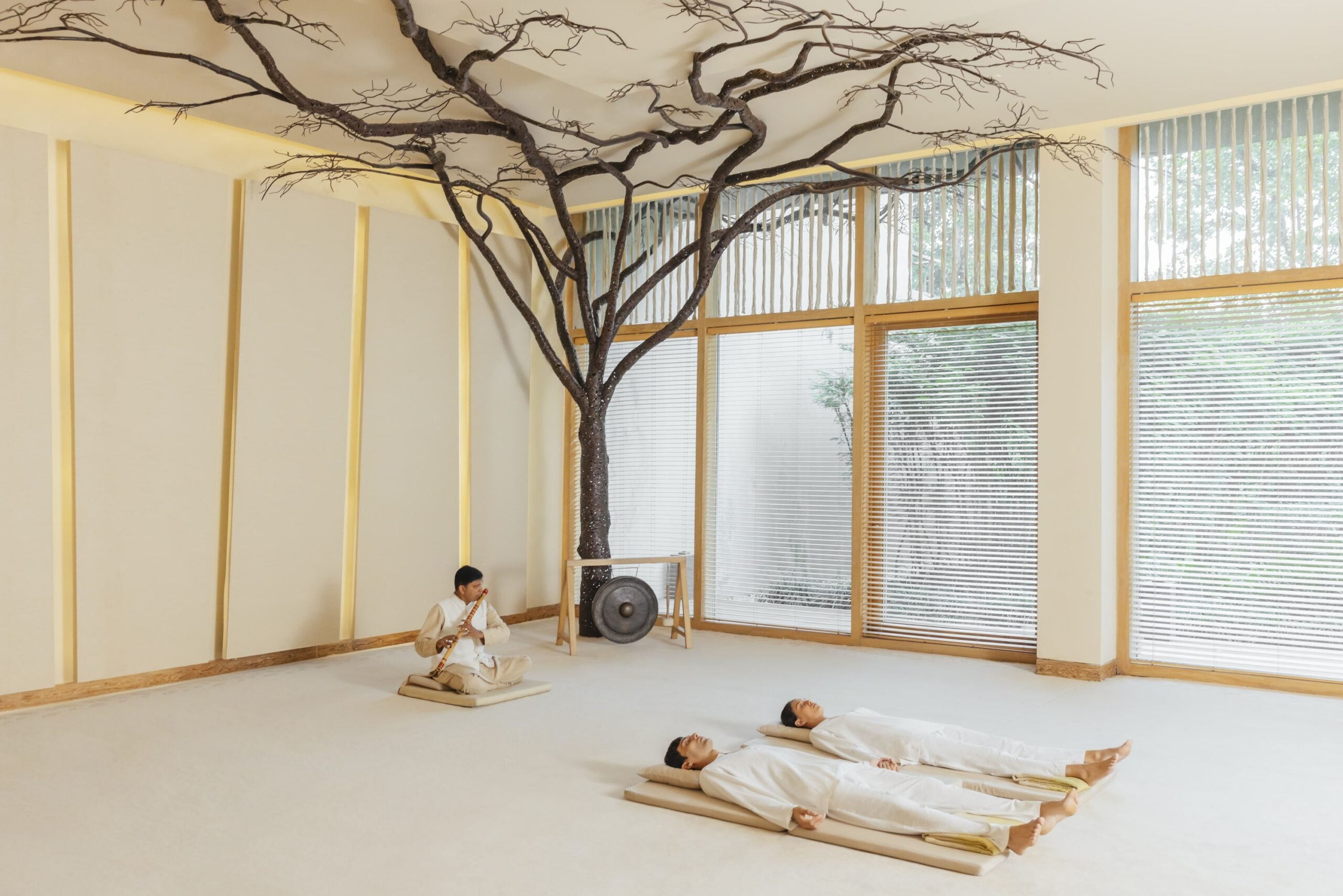
Expanding beyond Ayurveda, Six Senses is also one of the few hotels in the world to offer Sowa Rigpa — a traditional Tibetan medicine that identifies good health as a harmonious balance of three energies: loong (air), tripa (fire) and bekan (earth and water). Based on findings from an initial consultation, guests are set personalized itineraries.
Pulling from Ayurveda, Sowa Rigpa and more science-led technologies, a treatment plan might include massages, acupuncture, yoga, reflexology and meditation. An all-encompassing experience, the schedule includes a tailored meal plan based on individual nutritional needs. Guests are even outfitted with cotton kurta pajamas to be worn throughout their stay — both as a sign of respect for tradition but also as a leveling exercise.
“[There’s been] a quiet shift in the collective psyche. People are remembering that wellness is not something we add to our calendars, but something that threads through every part of how we live,” says Suri. “As that understanding deepens, ancient wisdom systems are being seen not as alternatives, but as essentials.”





